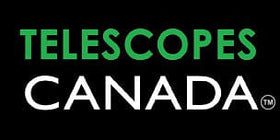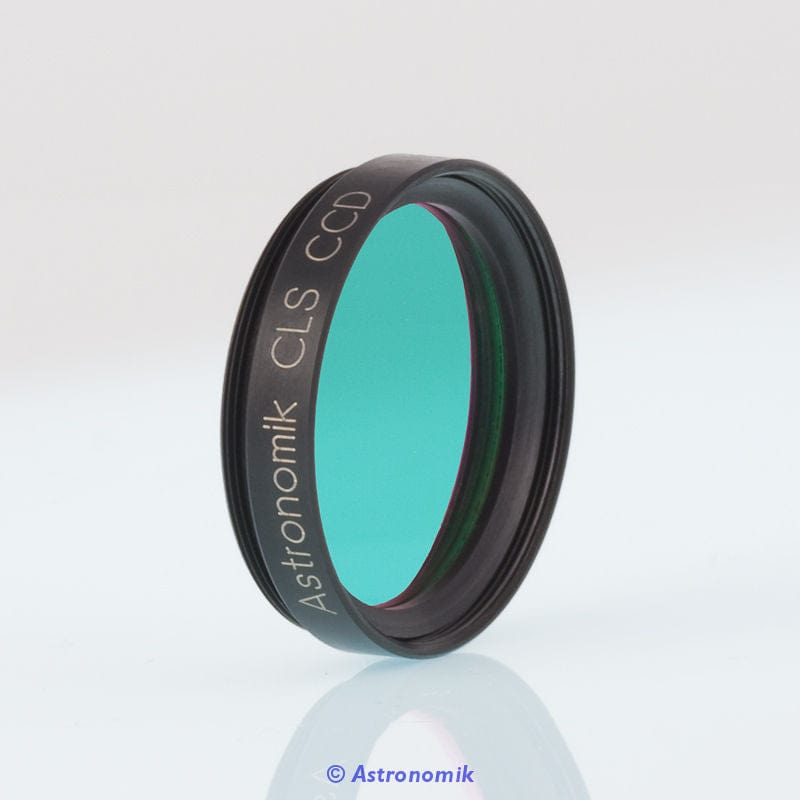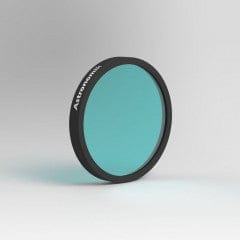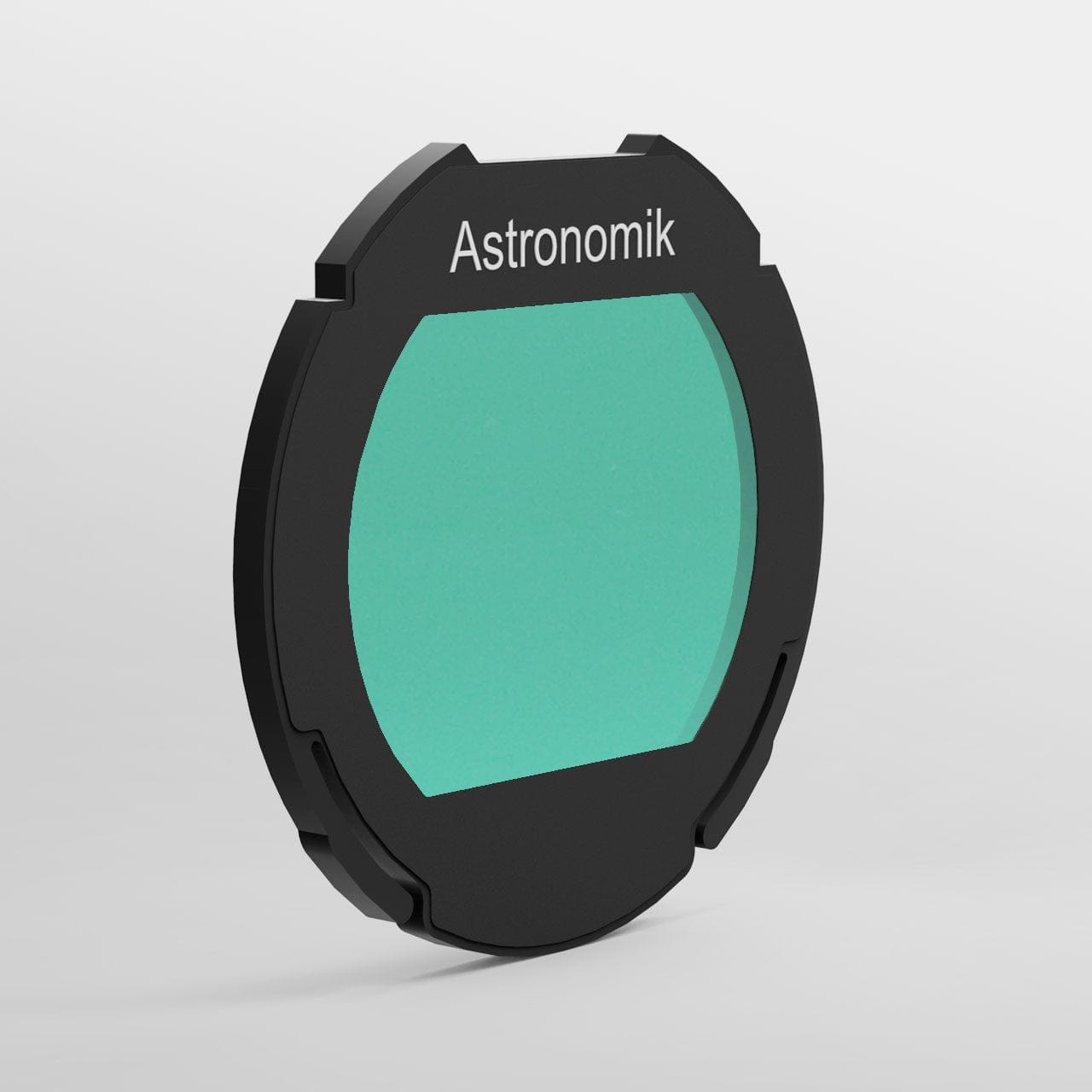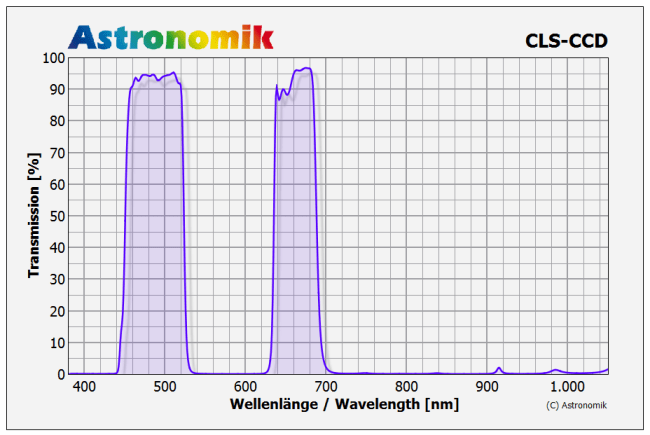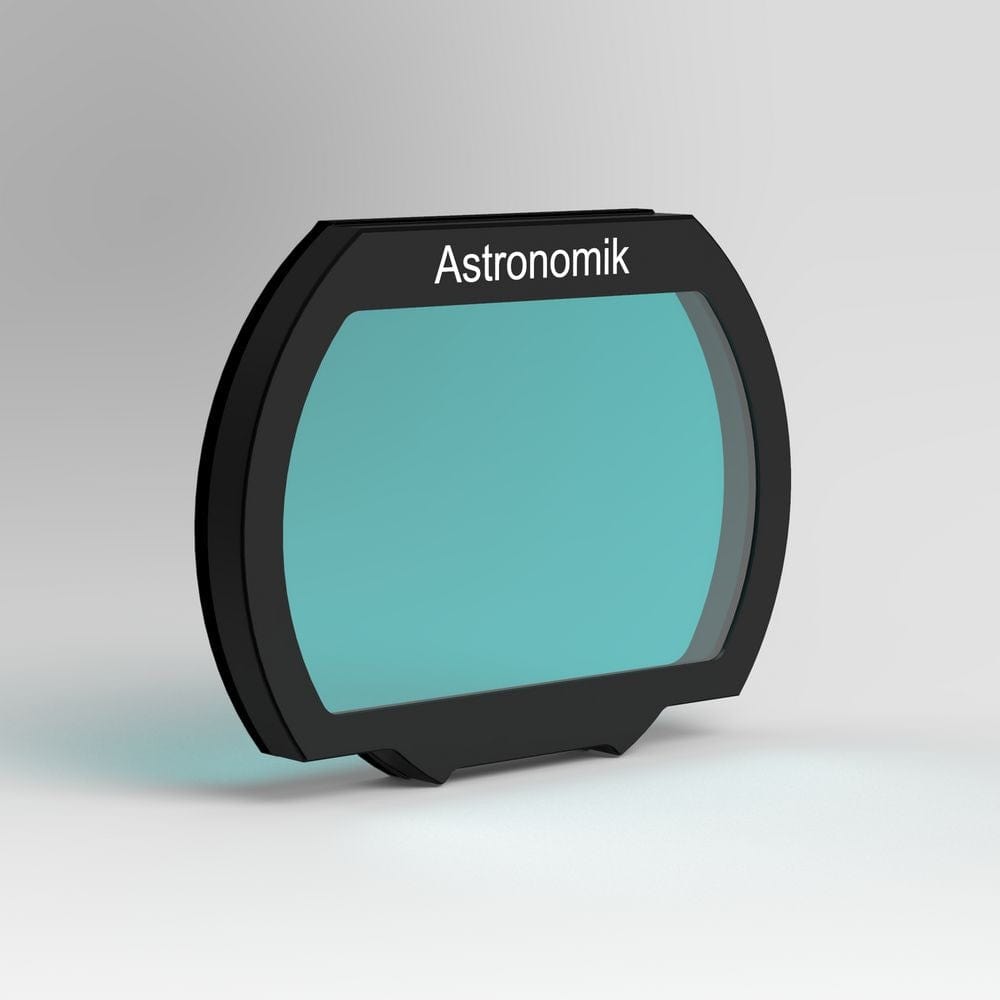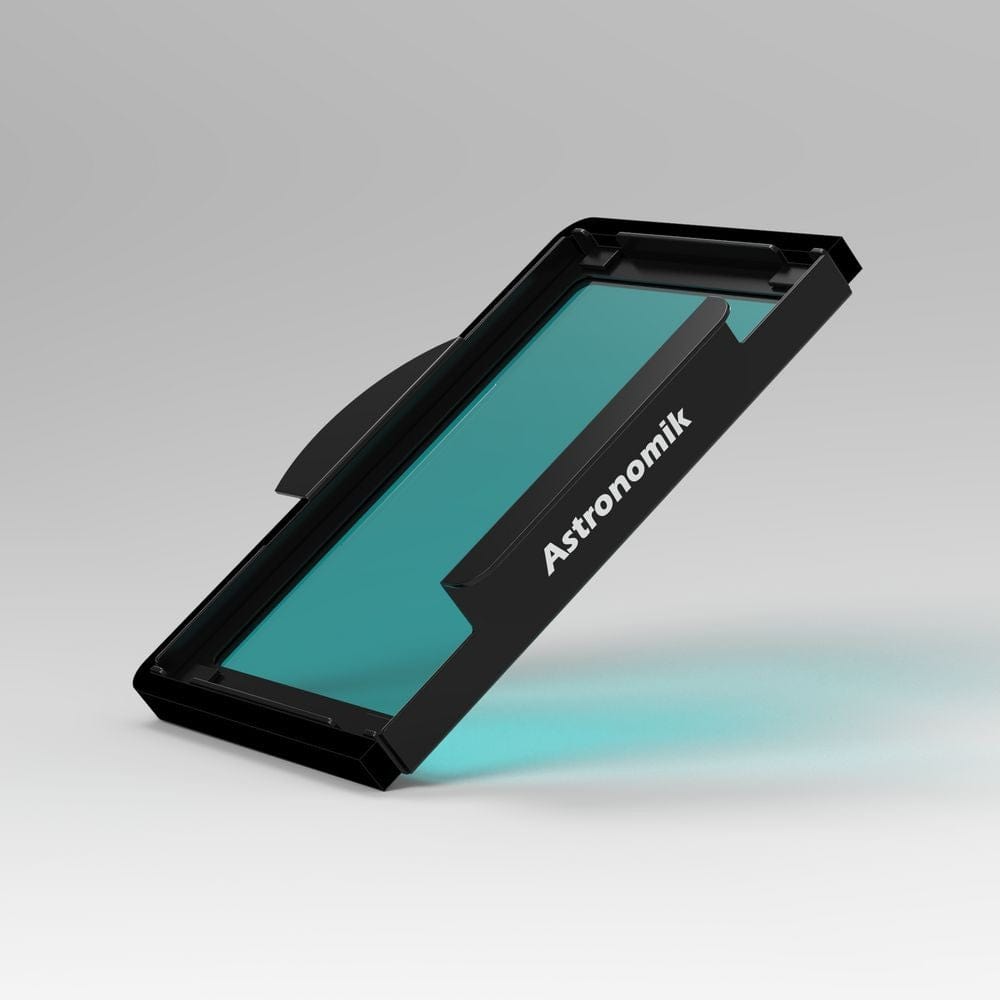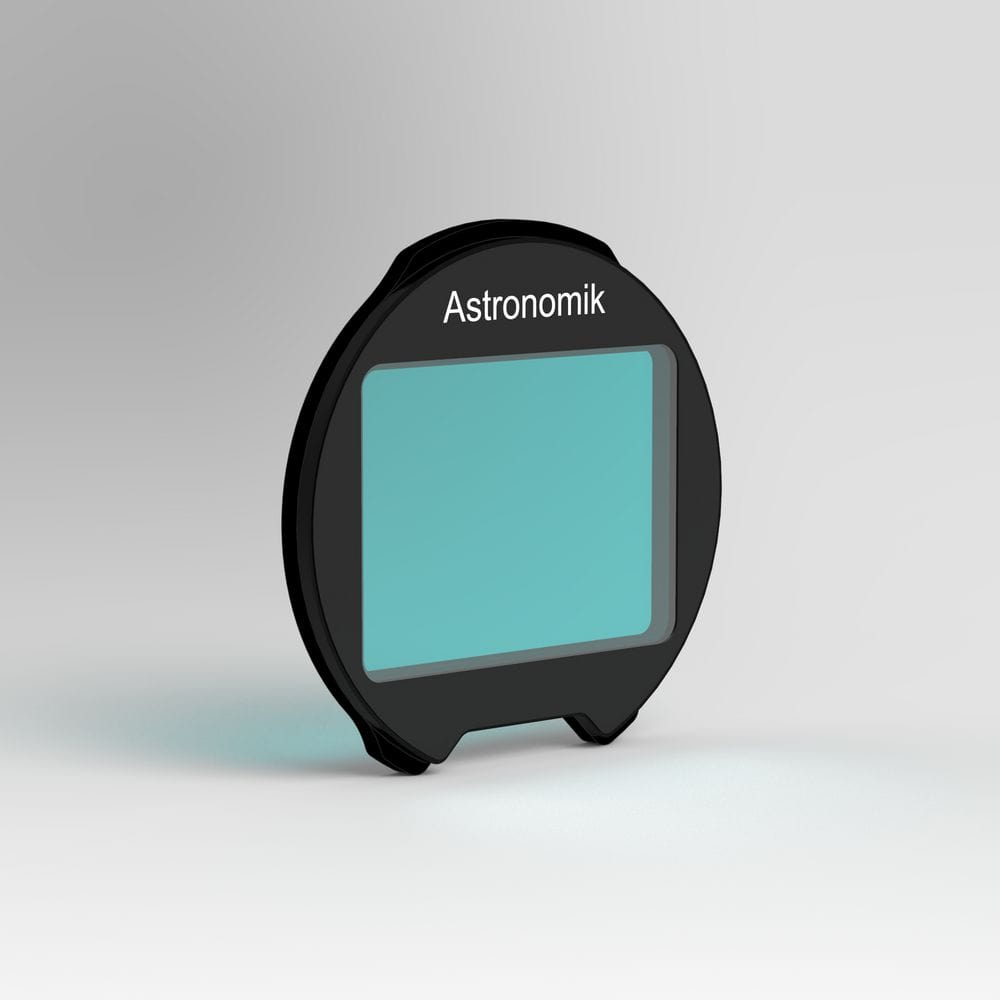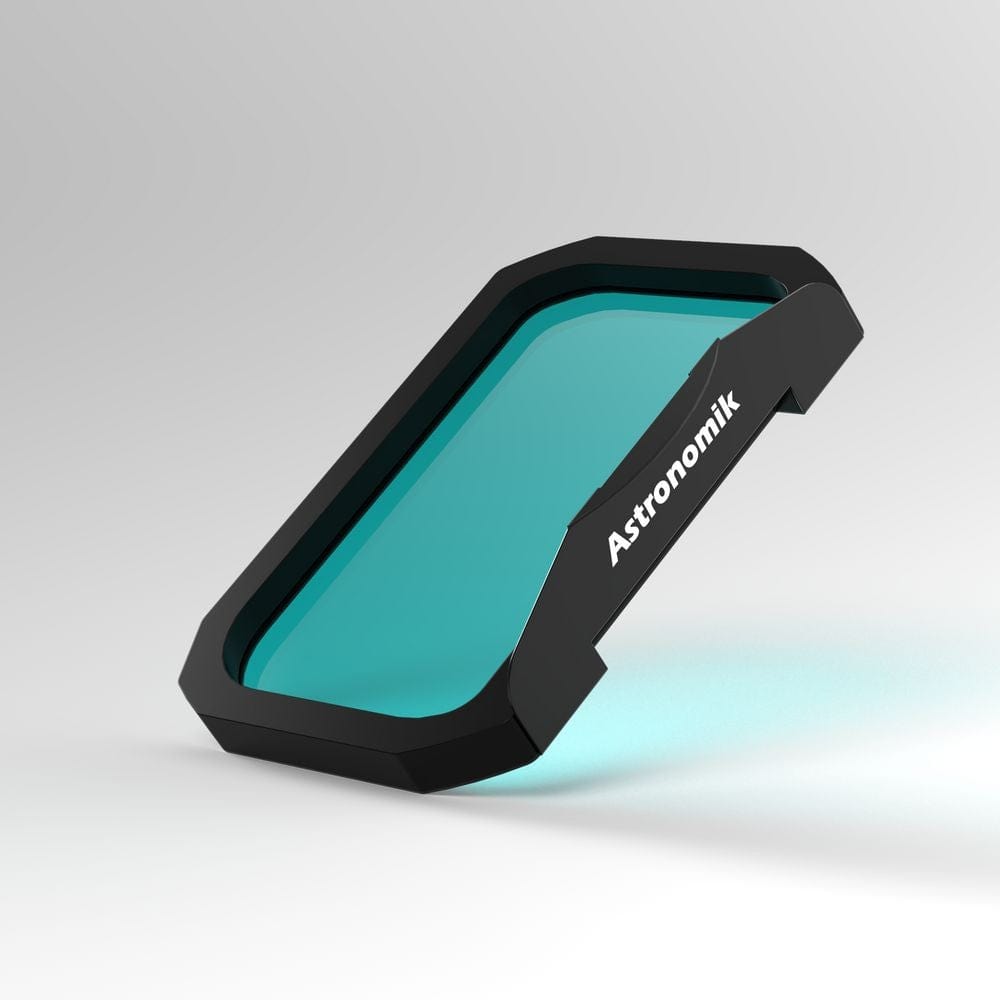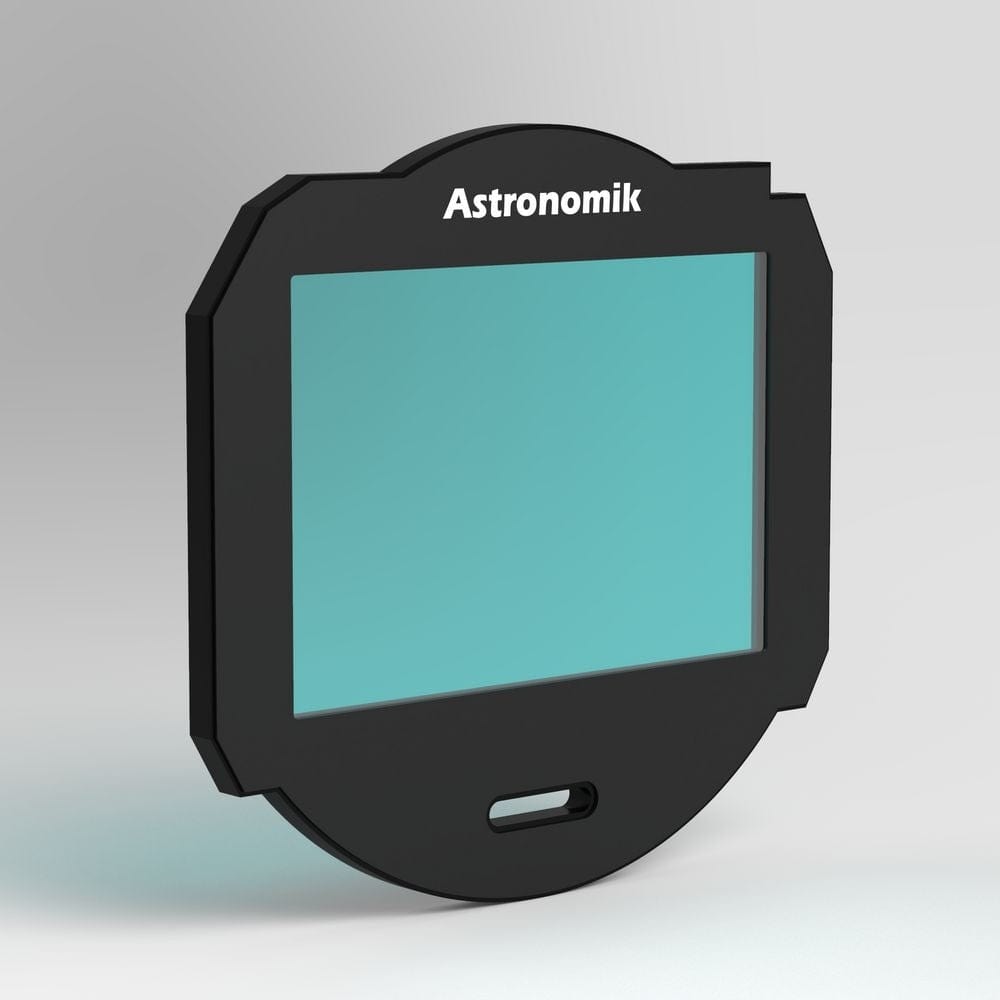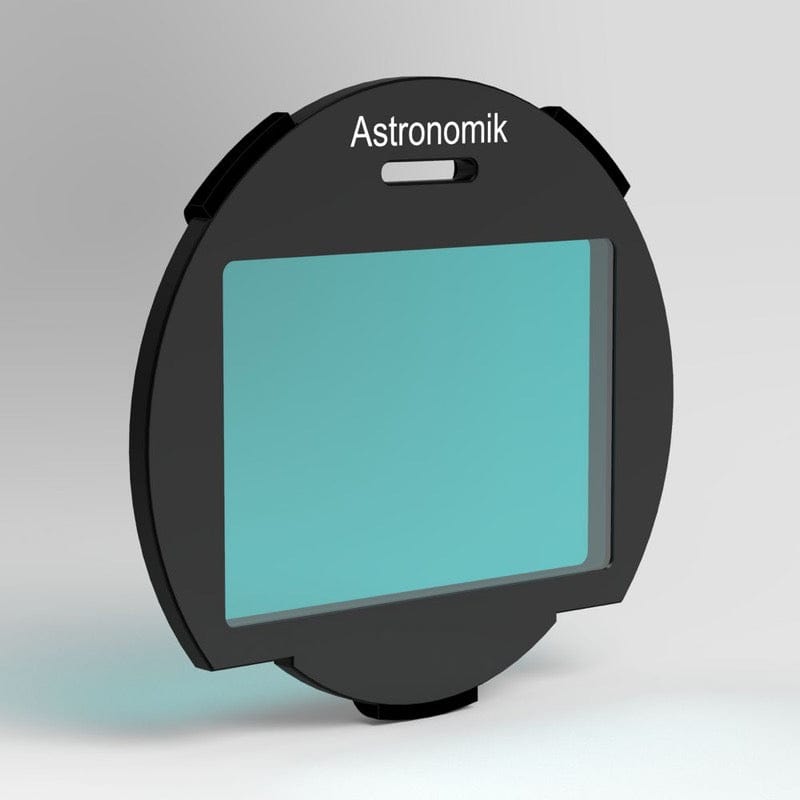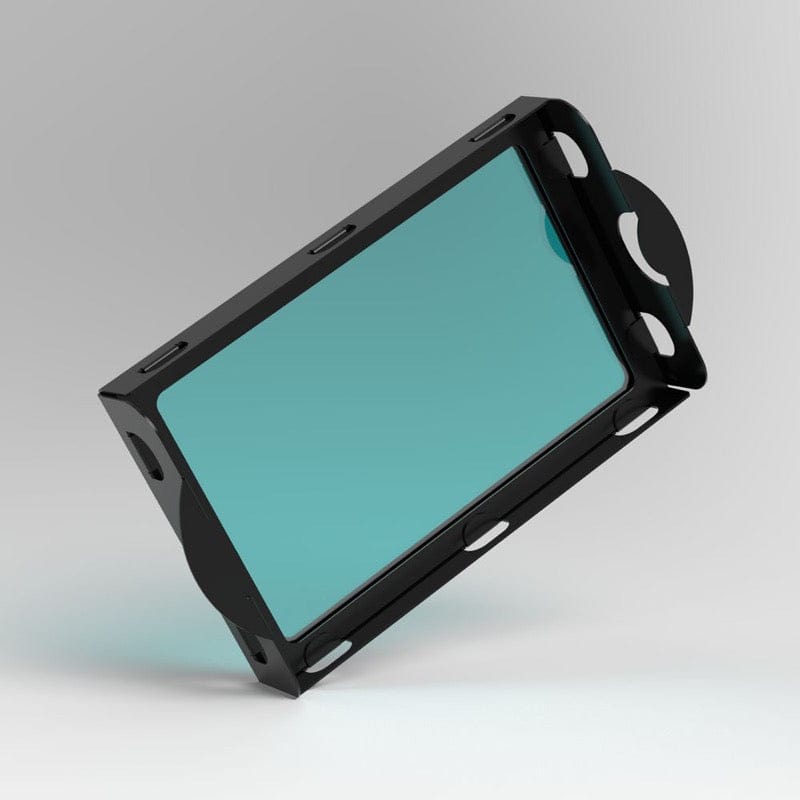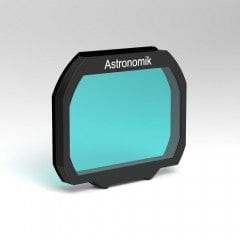Description
Astronomik CLS CCD filters are suitable under light-polluted skies for DSLR Cameras which have been modified for astronomical use. For unmodified DSLRs, use Astronomik CLS filters.
The filter enhances the contrast between all deep-sky objects and the background.
The CLS-CCD Filter enhances the contrast between astronomical objects and the background. Due to the wider transmission curve compared to UHC filters, a greater amount of light will pass the filter. Stars will be less dimmed. This filter has been optimized to block as much spurious light as possible and simultaneously provide the best performance for 'useful' light. A good filter for DSLR-, CCD- and film b/w-photography as well as observation of deep-sky-objects with telescopes or photo lenses of all aperture f/3 and above.
Main use
The filter blocks completely emission lines of artificial light sources like streetlights (e.g. sodium- and mercury-vapor) as well as the airglow. All 'important' emission lines as well as the spectral range of the night-adapted eye are being passed. The supplementary IR-blocking layer allows the use for DSLR- and Webcams without an integrated IR-block filter.
Other uses
Easier resolution of Double Stars
With the EOS-Clip model, photography with DSLR cameras is feasible even under extreme light-polluting conditions without shifting the white balance.
The 1,25" and 2" socket models can be used for observations from light-polluted areas.
If you plan to create color images from emission line data, our CLS-CCD filter is a great choice for the Luminance channel
Alternatives
CLS: For cameras with an integrated IR-filter or for visual observation.
Suitability
- Visual observation (dark skies): Good, to reduce light pollution by mercury-vapour lamps (streetlight)
- Visual observation (urban skies): Reasonable, an UHC-E or UHC filter is more suitable
- Film photography: Very good, colour balance is near perfect
- CCD photography: Very good, optimized rejection of light pollution
- DSLR photography (original): Good, colour balance shifted but contrast enhanced
- DSLR photography (astro modified): Very good, colour balance is near perfect
- DSLR photography (MC modified): Very good, colour balance is near perfect
- Webcam / Video (Planets): Unsuitable
- Webcam / Video (Deep Sky): Very good, if light pollution is a big problem
Sizes Available From Astronomik - Please ask us if we don't have a price listed for the one you would like
1.25" (M28.5)
2" (M48)
T-thread Cell (M42x0.75)
SC-Cell (2" / 24TPI)
Ø27mm
Ø31mm
Ø36mm
Ø42mm
Ø50mm
50x50mm
EOS APS-C Clip-Filter
EOS APS-C XT Clip-Filter
EOS M Clip-Filter
EOS XL Clip-Filter
Sony Alpha Clip-Filter
Nikon XL Clip-Filter
Pentax K Clip-Filter
Specifications
- 95% transmission at 486nm (H-beta)
- 95% transmission at 496nm (OIII)
- 95% transmission at 501nm (OIII)
- 97% transmission at 656nm (H-alpha)
- pass from 450 to 520nm and from 640 to 690nm
- Par focal with other Astronomik filters
- Glass thickness: 1mm
- Completely resistant against high humidity, scratches and aging effects
- Diffraction limited, the filter will not reduce the optical performance of your telescope!
- Astronomik filters are delivered in a high-quality, long lasting, filter box
- Since 2008 we do ship filters with a completely new design. Any kind of halo or strange reflection is a matter of past
